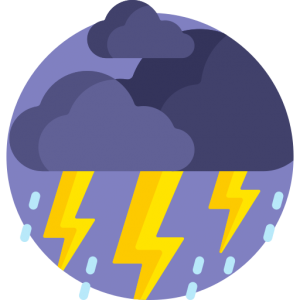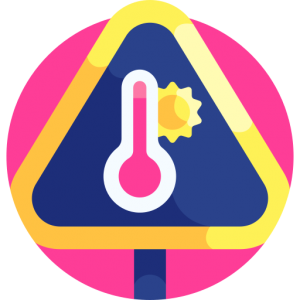Emergency measures
Are you ready if emergency strikes?
You will be responsible for the first decisive steps that will ensure your own safety, and the safety of your family, until emergency workers arrive on the scene. Remember: your safety is your responsibility, first and foremost!
What can you do?
1. Identify the risks
Adequate preparation means knowing what kind of risk you might have to face.
In Pointe-Claire, as elsewhere throughout Québec, we are exposed to a variety of risks: accidents involving hazardous materials, contaminated water or shortages of drinking water, fires, floods, power outages, earthquakes, violent winds, etc.
The Government of Québec’s tips on prevention can be found at www.securitepublique.gouv.qc.ca.
2. Make a plan
Making your own customized plan will help you take appropriate action in the event of an emergency.
Your plan will be very useful if an emergency strikes. Take a few minutes to prepare it.
Your plan should include the following points:
- Safe exits from your home and transit routes in your neighbourhood
- Meeting places
- Resource persons
- Health and insurance information
- A place where your pet can stay
- Emergency contact information
- Location of your fire extinguisher, water and gas inlets, electrical panel and floor drain
3. Have an emergency kit
Be prepared to be self-sufficient for at least 72 hours: this is how long it could take emergency workers to get to you, or for disrupted utility services to be restored.
During this period, you will need certain essential items. Keep in mind that you may have to manage on your own without power or running water.
Recommended items for a basic emergency kit:
- Drinking water – two litres per person per day, for at least three days
- Non-perishable foods – enough to last at least three days
- Manual can opener
- Flashlight with spare batteries
- Battery-operated radio with spare batteries
- First-aid kit
- Candles
- Lighter and matches
If you need to evacuate your home, the following items could be very useful:
- Medications and a list of medications
- Personal hygiene items: toothbrushes, towels, soap, toilet paper, garbage bags
- A change of clothes and blankets
- Extra car keys and house keys
- Cash and change
- Important personal papers, including photocopies of your identity documents
Tip: Put these items in a bag or other container ahead of time.
Potential Emergency Scenarios
FloodingMajor flooding can occur when the snow melts rapidly in the spring or during a persistent heavy rainfall, which can cause water channels to overflow, or for the ground to become oversaturated and no longer capable of absorbing water. In these cases, its important to take all necessary precautions. What to do during a major flood:
|
 |
Violent squalls, ice storms, tornadoes and hurricanesA long-lasting violent storm can usually cause a multitude of problems, including city-wide power outages, fallen branches and trees, and other structural damage. It is important to take all precautionary measures to ensure your wellbeing and that of your family. What to do during a squall, ice storm, tornado, or hurricane:
|
 |
Severe Heat WavesDuring periods of extreme heat, a person’s health can quickly deteriorate, especially for children and infants. To avoid heat stroke, dehydration, exhaustion and other heat related health effects, it’s important to be informed on how to stay hydrated and healthy. What to do during a heat wave:
|
 |
EarthquakeThough high-intensity earthquakes are uncommon in Quebec, nearly 5,000 low-magnitude ones occur in Canada each year. Most only last a few seconds and cause minimal structural damage, but it is still important to be aware of the appropriate safety measures. What to do during an earthquake: If you are outdoors:
If you are outdoors
|
 |
Links and downloads
- Pamphlet “Are you ready if emergency strikes?”
- securitepublique.gouv.qc.ca (Government of Quebec)
- getprepared.gc.ca (Government of Canada)
